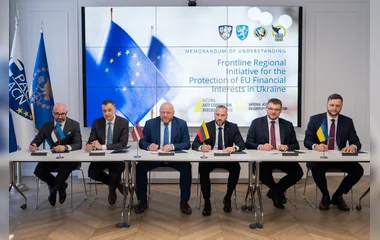The National Agency on Corruption Prevention (NACP) has found violations worth over UAH 34.8 million in the declarations of a member of the Khmelnytskyi Regional Council, who is also the chief physician of the Khmelnytskyi Regional Centre for Medical and Social Expertise.
A full audit of the 2022 declaration revealed signs of illicit enrichment, as well as signs of declaring false information worth over UAH 16.5 million.
In particular, during 2022, the declarant and her husband exported more than UAH 38 million in different currencies from Ukraine. The origin of UAH 16.4 million was not confirmed by official documents, which is a sign of illicit enrichment, and the information about such income was not indicated in the declaration.
During the re-examination of the declaration for 2023, which was initiated due to newly discovered circumstances, it was found that the declarant did not indicate information about monetary assets in the amount of UAH 18 million, the right to claim which is held by her husband, information about which she could not have been unaware. In addition, the source of the funds that were later seized during the pre-trial investigation was not confirmed. In total, in 2023, signs of false information worth more than UAH 18.3 million were identified.
The audits also revealed cryptocurrency hidden from declaration, which belonged to the declarant's husband.
The substantiated conclusions were sent to the National Anti-Corruption Bureau of Ukraine.
As a reminder, at the end of 2024, the NACP launched a second full verification of the declaration of the head of the Khmelnytsky Regional Centre for Medical and Social Expertise, whose assets were reportedly found by the State Bureau of Investigation during searches to be worth almost USD 6 million in cash alone. The amount of money was reportedly almost USD 6 million.
According to Article 62(1) of the Constitution of Ukraine, a person shall be presumed innocent of committing a crime and shall not be subjected to criminal punishment until his or her guilt is proved in accordance with the law and established by a court verdict of guilty.









